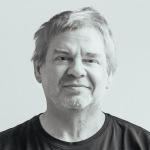Vilvoorde traffic and parking guidance with ANPR and PGS technology
21018
From 2021 to 2023
Commissioned by the city of Vilvoorde, TML investigated smart digital solutions to reduce congestion and heavy traffic in the centre of Vilvoorde. These solutions rely on ANPR technology and dynamic signage but also on tele-information systems that reach and guide drivers in cars in real time.
The accessibility and liveability within the city of Vilvoorde are under mounting pressure due to increasing motorised traffic that has no destination in the city. This leads to more congestion and cut-through traffic and slows down public transport. The congestion makes the streets look less friendly to soft forms of mobility. The city of Vilvoorde wanted to invest in an ANPR system that keeps out through freight traffic from the city centre. In addition, they wanted to invest in a smart parking guidance system that directs car traffic with a local destination to recommended parking spaces.
TML took the lead in two studies. A first study had as its subject a digital system that identifies violations of restrictions on through traffic. The second study examined a digital system that monitors occupancy in underground and surface parking spaces and directs local destination traffic to these parking spaces in a tiered manner. The study led to the procurement of the most appropriate and affordable technology that can address the problems efficiently. This increased accessibility and liveability within the city, reduced unwanted traffic, and made traffic arrive at its destination faster. Streets in the city centre have become more attractive to walkers and cyclists, making soft mobility modes more common in the streetscape.
The studies ran in phases and in parallel. In the first phase, we mapped Vilvoorde's needs. We drew up scenarios that respond to these needs and proposed suitable technologies in combination with optimal geographical implantation locations. TML, in cooperation with the city government and other partners, also tested the feasibility and effectiveness of the proposed systems with test sites. TML compared the players of such systems in the market and prepared a market-based tender with the partners. Conducting the studies and preparing the tenders took seven months. Afterwards, TML supported the awarding process and followed up with the other partners during the implementation phase. The project ended in May 2023.
TML took the lead in this project and was supported by partners Tractebel, MORE LION, Rasschaert Advocaten, and Rebel. TML mainly took charge of the parking guidance system and was heavily involved in all other topics and phases. The increasing mobility pressurising municipal centres is a recognisable contemporary problem. Our reports can thus serve as a roadmap against which small and medium-sized cities can mirror and be inspired to face similar problems.
The accessibility and liveability within the city of Vilvoorde are under mounting pressure due to increasing motorised traffic that has no destination in the city. This leads to more congestion and cut-through traffic and slows down public transport. The congestion makes the streets look less friendly to soft forms of mobility. The city of Vilvoorde wanted to invest in an ANPR system that keeps out through freight traffic from the city centre. In addition, they wanted to invest in a smart parking guidance system that directs car traffic with a local destination to recommended parking spaces.
TML took the lead in two studies. A first study had as its subject a digital system that identifies violations of restrictions on through traffic. The second study examined a digital system that monitors occupancy in underground and surface parking spaces and directs local destination traffic to these parking spaces in a tiered manner. The study led to the procurement of the most appropriate and affordable technology that can address the problems efficiently. This increased accessibility and liveability within the city, reduced unwanted traffic, and made traffic arrive at its destination faster. Streets in the city centre have become more attractive to walkers and cyclists, making soft mobility modes more common in the streetscape.
The studies ran in phases and in parallel. In the first phase, we mapped Vilvoorde's needs. We drew up scenarios that respond to these needs and proposed suitable technologies in combination with optimal geographical implantation locations. TML, in cooperation with the city government and other partners, also tested the feasibility and effectiveness of the proposed systems with test sites. TML compared the players of such systems in the market and prepared a market-based tender with the partners. Conducting the studies and preparing the tenders took seven months. Afterwards, TML supported the awarding process and followed up with the other partners during the implementation phase. The project ended in May 2023.
TML took the lead in this project and was supported by partners Tractebel, MORE LION, Rasschaert Advocaten, and Rebel. TML mainly took charge of the parking guidance system and was heavily involved in all other topics and phases. The increasing mobility pressurising municipal centres is a recognisable contemporary problem. Our reports can thus serve as a roadmap against which small and medium-sized cities can mirror and be inspired to face similar problems.


